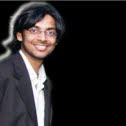Quit to fight another day!
Putin should resign to change his perception as a ruthless power hungry political leader; and then (rightfully) reclaim the throne a few months later – that’s a sleight Putin knows too well and has practised well in the past
“Putin is Stalin! Putin is Brezhnev! Russia without Putin!” The protest slogans broke the calm across Moscow’s streets on the occasion of May 1, 2010 – International Labour Day. What made this protest uniquely different from past protests was that this protest – ostensibly in criticism of Putin’s abuse of media freedom and democratic rights – was supported by around 1.7 million people in 1,000 cities across Russia over eight time zones. More than 40,000 people signed a petition demanding Putin’s resignation. One has to realise that in Russia, where Putin’s ruthless power wielding (and stymieing of opposition dissent – sometimes suspiciously violently or through undemocratic jailing) is compared often to mafiosi behaviour, for protestors to come out in the open en masse like this is an ocean of a change. Among the frontrunners in the protests was chess wizard and now political opponent Gary Kasparov.
Putin’s decisions regarding utilities prices, increased taxes on imported cars and environmental initiatives have provided a snowball effect for the wave of discontent. Of late, there have been many more such incidents. Starting from 2007, numerous “Dissenters’ Marches” were organized across various cities like Moscow, Saint Petersburg and Nizhny Novgorod. On January 30, 2010 in Kaliningrad, around 10,000 people came together to protest against Putin’s decision to increase the transportation tax. And in March 10, 2010, Russian opposition activists started an online campaign.
Undeniably, there have been several incidents of human rights abuses and shocking assassinations, purportedly sponsored by the State. Particularly during the second Chechen War, corruption flourished and strengthened its roots and a new group of business lobbyist came into being (Gennady Timchenko, Vladimir Yakunin, Yuriy Kovalchuk and Sergey Chemezov) with personal linkages with Putin. The recent killings of human rights lawyer Stanislav Markelov and newspaper reporter Anastasiya Baburova have further added fuel to fire and led to tensions with the EU President. Amnesty noted with grave concern in 2007 how Putin was rolling back civil rights in Russia. Another critical blot has been the continued trial of Russia’s richest man, Mikhail Khodorkovsky, because he allegedly financed Putin’s opponents, apart from committing corporate fraud – he’s now serving an eight year sentence.
But then, there is a flamboyant other side to Putin too. Truly, Russia has enjoyed one of the most prosperous periods of growth under Putin after Boris Yeltsin left the country in a sorry state. Between 2000-2008, GDP growth peaked at 10% (2000) and saw 5 years of GDP growth over 7% (APEC). He devised strong policies in fiscal reforms, oil prices, and external financing. Russia experienced a PPP growth of 72%, poverty rates dropped by 50% and average salaries increased by eight times. So Putin’s enduring popularity, by far the highest in the world, isn’t surprising (In 2007, Putin’s approval rating was 81%; even in late 2009, post recession, it was still 65%; Levada Center public opinion surveys). Various surveys revealed that Russians felt the country was “more democratic” under Putin than during the Yeltsin or Gorbachev years.
Given all that, there can be no denying that for all it matters, there is no better choice than Putin that Russia currently has for a leader. Then how does one handle the increasing protests? The solution is pretty simple – and one that Putin has practised well in the past. Putin should resign from his position (for a few months perhaps) and let the protest brigade run out of steam. Once that happens, he should quietly step back and reclaim the throne. Well, it has been rightfully his for years...





No comments:
Post a Comment